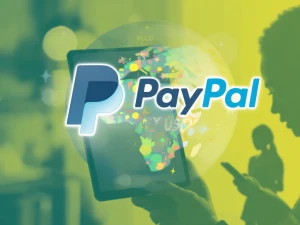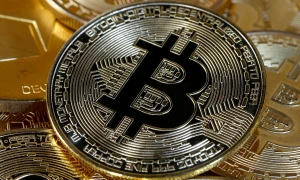الدورات
title
PayPal Enhances Global Payments with PYUSD Through Partnership with Xoom

PayPal has launched a strategic initiative to expand its global payment offerings, partnering with Xoom to facilitate cross-border transactions using its stablecoin, PayPal USD (PYUSD). This collaboration aims to drive PYUSD adoption in key markets across Asia and Africa, significantly enhancing the efficiency of international money transfers.
PYUSD: Revolutionizing Global Transactions with PayPal
In a major step forward for digital payments, PayPal has leveraged its Xoom service to enable seamless cross-border payments using PYUSD, a stablecoin that is 1:1 backed by the US dollar and regulated by Paxos Trust Company. This partnership is poised to address long-standing barriers such as limited banking hours and the lack of access to financial services in many regions.
Launched in 2023, PYUSD seeks to challenge established stablecoins like USDC from Circle Internet Financial and carve a niche in the growing market for digital currencies. While PayPal's PYUSD has faced competition from these established players, the company is working to extend its reach by investing heavily in new partnerships and integrations.
Strategic Collaboration with Xoom and Key Partners
Through its collaboration with Xoom, Cebuana Lhuillier, and Yellow Card, PayPal aims to manage the distribution of PYUSD payments across emerging markets. This initiative enhances the ability to send money efficiently, particularly to regions with underdeveloped banking infrastructures.
Chris Maurice, CEO of Yellow Card, commented, “Stablecoins like PYUSD are transforming the global payments landscape, and thanks to our integrated infrastructure and technology, users will be able to move money more efficiently.”
The PYUSD initiative also enables cross-border transactions outside traditional banking hours, further streamlining global trade and personal remittances.
Innovative Technology and Infrastructure for PYUSD
A major benefit of PYUSD is its compatibility with the Ethereum ecosystem, as it is an ERC-20 token. This design ensures easy integration with digital wallets, Web3 applications, and cryptocurrency exchanges, offering flexibility for developers and businesses alike.
PayPal has been proactive in ensuring widespread adoption of PYUSD by collaborating with industry leaders in the cryptocurrency sector. In 2024, PayPal launched several integrations, such as a rewards program with Anchorage Digital to incentivize holding PYUSD, and a partnership with MoonPay, which allows users to purchase cryptocurrencies directly from their PayPal accounts.
Moreover, PayPal brought PYUSD to the Solana blockchain in collaboration with Crypto.com, Phantom, and Paxos, enabling faster and more cost-effective transactions across a highly efficient blockchain network.
Challenges in the Stablecoin Market
Despite its progress, PYUSD faces stiff competition from leading stablecoins like Tether’s USDT and Circle’s USDC, which dominate the market with respective market capitalizations of $128 billion and $37 billion.
However, PayPal’s vast global user network and continued focus on technological innovation position PYUSD as a strong contender. As stablecoins become more relevant in the global financial landscape, PayPal is optimistic about the growth potential of PYUSD.
Although still building its user base and transaction volume, PayPal remains confident that PYUSD will thrive, driven by its scalable and secure infrastructure, along with the support of its key technological partners.
Conclusion: The Future of PYUSD in Global Payments
PayPal’s ongoing efforts to expand the reach of PYUSD through strategic partnerships and technological advancements signal a bright future for stablecoins in cross-border payments. With initiatives designed to improve accessibility and efficiency, PYUSD is set to play a pivotal role in reshaping the global financial ecosystem, especially in emerging markets in Asia and Africa.





